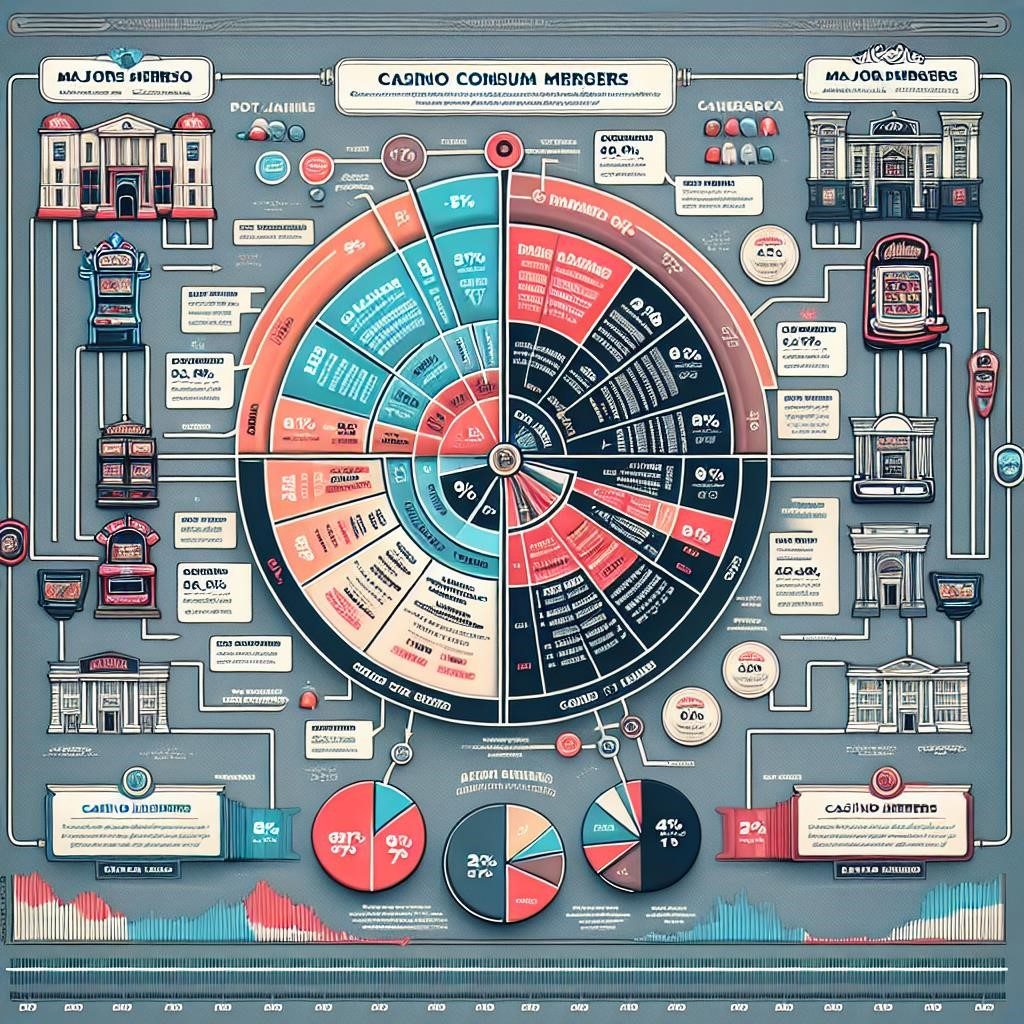The gambling industry has seen significant evolution over the years, particularly through mergers and acquisitions that reshape the landscape of casino operations. As consumer preferences shift and technology advances, these mergers play a crucial role in determining the future of gambling. In this article, we will explore some of the biggest mergers in the gambling industry and delve into the changing preferences of casino consumers.
Major Mergers in the Gambling Industry
The gambling sector has witnessed numerous high-profile mergers that have altered the competitive dynamics. Here are some of the most notable:
- Caesars Entertainment and Eldorado Resorts (2020)
This merger was one of the largest in the history of the gambling industry, with Eldorado acquiring Caesars for $17.3 billion. The deal combined two of the biggest names in the casino business, significantly expanding Eldorado’s portfolio and market presence. - MGM Resorts and Mirage Sale (2021)
MGM Resorts agreed to sell The Mirage to Hard Rock International for $1.075 billion. This sale allowed MGM to focus on its core properties while Hard Rock expanded its footprint on the Las Vegas Strip. - Flutter Entertainment and Stars Group (2020)
The merger between Flutter Entertainment, the parent company of Paddy Power and Betfair, and The Stars Group, owner of PokerStars, created one of the largest online betting and gaming firms in the world. This $6 billion deal emphasized the growing importance of online gambling. - DraftKings and SBTech (2020)
DraftKings, known for its daily fantasy sports, merged with SBTech, a sports betting technology provider. This strategic move enabled DraftKings to enhance its sports betting offerings, reflecting the increasing consumer interest in sports wagering.
Shifting Consumer Preferences in Casinos
As the gambling industry evolves, so do the preferences of consumers. Understanding these shifts is essential for operators looking to thrive in a competitive marketplace. Here are some key trends:
1. Online Gambling Growth
The rise of online gambling platforms has transformed how consumers engage with casinos. Many players prefer the convenience of online betting, leading to a surge in mobile apps and websites offering casino games.
2. Experience Over Transactions
Modern consumers seek immersive experiences rather than just transactional interactions. Casinos are responding by enhancing the overall guest experience, offering entertainment options beyond traditional gaming, such as concerts, fine dining, and themed events.
3. Sports Betting Popularity
With the legalization of sports betting in numerous states, consumers are showing increased interest in betting on sporting events. Casinos are adapting by incorporating sports betting lounges and mobile sports betting apps to cater to this demand.
4. Responsible Gambling Initiatives
Consumers are becoming more aware of responsible gambling practices. Casinos are implementing measures to promote responsible gaming, such as self-exclusion programs and providing resources for those seeking help.
5. Emphasis on Technology
Technological advancements are shaping consumer preferences. From cashless gaming options to virtual reality experiences, casinos are leveraging technology to enhance the gaming experience, attracting tech-savvy players.
The gambling industry is undergoing a dynamic transformation driven by significant mergers and evolving consumer preferences. As the landscape continues to change, operators must stay abreast of these trends to meet the demands of their clientele. Understanding the impact of recent mergers and the shifting focus towards online platforms and experiential offerings will be crucial for the future of the gambling sector.

Comment here